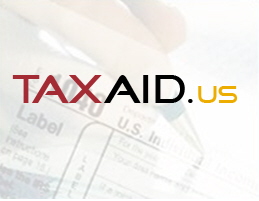2. IRS ATTACKS Offshore Structures!

Talking Points
Schemes
- The Abusive Tax Scheme Program is concerned about taxpayers who exploit secrecy laws of offshore jurisdictions in an attempt to conceal assets and income subject to tax by the United States.
- Some different types of entities and schemes being used in Abusive Offshore
Tax Schemes include:
- Foreign trusts
- Foreign corporations
- Foreign (offshore) partnerships, LLCs and LLPs
- International Business Companies (IBCs)
- Offshore private annuities
- Private banking (U.S. and offshore)
- Personal investment companies
- Captive insurance companies
- Offshore bank accounts and credit cards
- Related-party loans
- Abusive schemes usually create structures that make it appear a nonresident alien or foreign entity is the owner of assets and income, when in fact and substance, true ownership remains with a U.S. taxpayer.
- Taxpayers may utilize a variety of devices to conceal transfers of money or other property to a foreign entity, where the income it generates may be hidden. The simplest method of diverting income is sending skimmed income to an offshore account or entity. Other methods used to transfer money or other property offshore include the use of payments disguised as deductible expenses (for example, rents or purchases) that are paid to entities controlled by the taxpayer and generally located in a tax haven jurisdiction.
- Taxpayers may fabricate sales of property to a foreign entity that they control, perhaps in exchange for a note of which they do not expect repayment. This gets title to the property - and its future earnings - offshore. In some cases, taxpayers may purchase nonexistent equipment from a tax haven corporation controlled by a related entity. Taxpayers then often improperly claim depreciation on payments really made to themselves.
- Once money or title to property is moved offshore, the taxpayer can continue to manage it with ease using sophisticated means of communication and funds transfers. Some tax haven banks, trust companies, attorneys, and accountants operate virtual factories making false documents to create paper trails to confound auditors. A taxpayer or his foreign representative can easily create front corporations inside or outside the United States to carry out the taxpayer's instructions. For example, one Cayman banker explained how his bank could credit checks made payable to U.S. dummy corporations to a customer's offshore account. These dummy corporations are set up for that purpose so that the checks would clear through the offshore bank's correspondent account at a U.S. bank with no evidence the funds were credited elsewhere.
- Representations of foreign entities may be entirely fictitious. An example involved the Bank of Credit and Commerce International (BCCI), which recorded many large transactions with its Bahamas branch. In fact, BCCI had no charter in the Bahamas and no presence there. The Bahamas Branch was merely a "cyber bank", a separate set of books kept on a BCCI computer in Miami.
- Some of the most popular methods of repatriating funds include:
- Credit cards which simply draw on the U.S. taxpayer's offshore account
- Loans from mystery offshore lenders
- Loans from domestic lenders in amounts beyond the taxpayer's apparent borrowing power (may be secured by offsetting deposits of offshore funds)
- Use of property titled to offshore entities at zero or below-market rental
- Bogus transactions designed simply to transfer funds to or from offshore entities, such as sales of property to offshore entities in jurisdictions where it is unlikely the property will actually be used or sold
- Gifts
- Scholarships for taxpayer's children
- "Payable Through" accounts
- Schemes fall into two general categories:
- Abusive schemes which exploit the way the U.S. taxes foreign persons as opposed to U.S. persons, and
- Taxpayer's who take what they perceive to be a legally defensible position in a "gray" area.
- Some schemes are designed to shelter current income from the taxpayer's existing business or investments, while others simply provide an offshore investment vehicle for income that has already been taxed. In either case, the mechanisms used allow the taxpayer to control assets transferred offshore and to hide the ultimate repatriation of the proceeds.
Promoters
- Promoters of such schemes may offer comprehensive management services that include bookkeeping and return preparation. Or, the promoter may simply create initial documents that create a "paper shield" behind which the taxpayer/client can control everything.
- Certain promoters are candid with their clients, acknowledging the scheme depends on fictitious arrangements designed to mislead the IRS. Others unscrupulously sell their clients on the idea that the arrangement legally permits avoidance of tax liability. Such promoters may point to case law and show the client how their arrangement avoids the pitfalls of previous schemes.
- Keep in mind the promoter does not have to convince the IRS; just convince the client long enough to make the sale. Once a taxpayer has entered into an abusive scheme, it may be difficult to get out of it. Consequently, the taxpayer may rely heavily on the promoter for advice, and even representation, when confronted with an IRS examination.
- The growth of Internet promotions has led increasing numbers of middle-income taxpayers into such arrangements. Even though the dollar amounts involved are usually smaller, the growth in numbers of taxpayers represents a serious compliance problem.
Tax Havens
- Abusive offshore transactions generally involve foreign jurisdictions that offer financial secrecy laws in an effort to attract investment from outside their borders. These jurisdictions are commonly referred to as "tax havens" because, in addition to the financial secrecy they provide, they impose little or no tax on income from sources outside their jurisdiction.
- It is difficult to quantify the amount of assets being held offshore or the rate at which the industry is growing. But it has been estimated that some $5 trillion in assets worldwide is held "offshore" in tax havens. Presumably, transfers from the U.S. represent a large share of this wealth. One authority has estimated the annual revenue loss to the U.S. at a minimum of $70 billion.
- Tax haven service providers and their clients know their actions are veiled from tax authorities by banking and commercial secrecy laws and by lack of tax treaties or tax information exchange agreements. They create paper entities to disguise the real parties to the transactions, and many are willing to create false documents to disguise the real nature of transactions.
- At least 40 countries aggressively market themselves as tax havens. Some have gone so far as to offer asylum or immunity to criminals who invest sufficient funds. They permit the formation of companies without any proof of identity of the owners, perhaps even by remote computer connection. Generally, though, such extremes are found in emerging nations where the stability and security of the financial, legal, and political systems is questionable.
- The largest concentrations of assets are attracted to the stable, secure environments of the established tax havens - those that have existed a number of years, and enjoy the diplomatic protection of former colonial powers.
Conclusion
- Citizens and residents of the United States are taxed on their worldwide income. To help prevent the use of offshore entities for tax evasion or deferral, Congress has enacted several specific provisions in the Internal Revenue Code. Some provisions trigger recognition of gains that would otherwise be deferred. Others deny deferral of tax on income moved offshore.
- Though promoters of offshore schemes often advance technical arguments, which purport to show that their scheme is legal, the intent of Congress remains clear. U.S. taxpayers are not to be allowed to evade taxes by shifting their own liability to some foreign entity.
|




